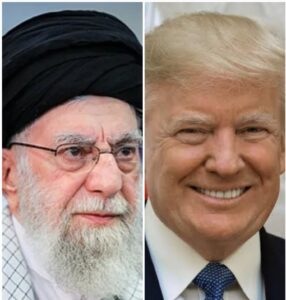The Pakistan-Russia 22,000 Crore Deal: Implications for India-Russia Relations
Samba Times Special

In recent years, the evolving geopolitical landscape has brought new dynamics to South Asia, with Russia’s growing engagement with Pakistan raising eyebrows in New Delhi. The reported 22,000 crore (approximately $2.6 billion) deal between Pakistan and Russia, primarily centered around the revival of a defunct steel plant and broader economic cooperation, has sparked discussions about its potential impact on the long-standing strategic partnership between India and Russia. While some view this development as a challenge to India-Russia ties, a closer examination reveals a more nuanced picture.
This article explores the nature of the Pakistan-Russia deal, its implications for India-Russia relations, and why it may not necessarily be a pitfall for New Delhi’s strategic partnership with Moscow.
The Pakistan-Russia Deal: Context and Scope
The 22,000 crore deal between Pakistan and Russia is part of a broader effort to deepen economic ties between the two nations. Posts on X indicate that the agreement focuses on reviving Pakistan Steel Mills, a project originally constructed with Soviet assistance in the 1970s, alongside other economic initiatives aimed at boosting bilateral trade, which reached $1 billion in 2023. This follows a trajectory of warming Russia-Pakistan relations, marked by defense cooperation agreements since 2014, joint military drills, and energy projects like the $1.7 billion Karachi-to-Lahore gas pipeline signed in 2021.
Russia’s support for Pakistan’s inclusion in BRICS and its membership in the Shanghai Cooperation Organisation (SCO) since 2017 further highlights this growing partnership.
Historically, Russia-Pakistan relations were strained due to Cold War alignments, with Pakistan siding with the United States and Russia maintaining close ties with India. However, the post-Cold War era, particularly after the U.S. withdrawal from Afghanistan in 2014 & now alignment of the western countries NATO towards Ukraine in the ongoing Russia Ukraine war and imposing of sanctions while the US and its allies has seen Moscow pivot toward Islamabad to counterbalance U.S. influence and address regional security concerns, especially in Afghanistan. The steel plant deal is a continuation of this pragmatic outreach, driven by Russia’s need to diversify its economic partnerships amid Western sanctions and Pakistan’s search for alternatives to declining U.S. support.
India-Russia Relations: A Strategic Anchor
India and Russia share a deep and historically rooted partnership, often described as a “special and privileged strategic partnership.” This relationship, forged during the Cold War, is built on five pillars: politics, defense, civil nuclear energy, anti-terrorism cooperation, and space exploration.
Russia has been India’s primary arms supplier, with over 60% of India’s military arsenal, including T-72 and T-90 tanks, Su-30 aircraft, S 400 and BrahMos missiles, originating from Soviet or Russian designs. Bilateral trade reached $66 billion in 2024, with ambitions to hit $100 billion by 2030, driven by energy cooperation and India’s imports of discounted Russian oil.
Russia’s consistent support for India on sensitive issues like Kashmir, including multiple UN Security Council vetoes in India’s favor, has cemented Moscow’s role as a reliable partner. The 1971 Indo-Soviet Treaty of Friendship and Cooperation, signed during the Bangladesh Liberation War, remains a cornerstone of this alliance, reflecting shared strategic interests against the U.S.-Pakistan-China axis of that era. Even today, Russia views India as a key global partner, alongside China, in its vision of a multipolar world.
Does the Pakistan-Russia Deal Threaten India?
The 22,000 crore deal has raised concerns in India, particularly as it coincides with increased Russia-Pakistan engagement in defense and regional forums like the SCO. Some analysts argue that Russia’s outreach to Pakistan could dilute its commitment to India, especially if Moscow expands arms sales to Islamabad.
Pakistan’s interest in Russian Su-35 fighters and Mi-35 helicopters, as noted in 2021, has fueled these concerns, given India’s reliance on Russian weaponry. Additionally, Russia’s neutral stance during recent India-Pakistan tensions, such as the 2025 Pahalgam terror attack and India’s Operation Sindoor, has frustrated New Delhi, as Moscow refrained from explicitly condemning Pakistan.
However, several factors suggest that the deal is not a significant pitfall for India-Russia relations:
- Economic Scale and Strategic Priorities: The Pakistan-Russia deal, while significant for Islamabad, pales in comparison to India-Russia trade, which was $65 billion in 2024, dwarfing the $1 billion Russia-Pakistan trade volume. Russia’s economic and strategic stakes in India, particularly in defense and energy, far outweigh its interests in Pakistan. Moscow is unlikely to jeopardize its access to India’s lucrative defense market, which remains a cornerstone of bilateral ties.
- Geopolitical Constraints: Russia’s engagement with Pakistan is largely driven by regional imperatives, such as countering terrorism and stabilizing Afghanistan, rather than a strategic shift away from India. Moscow has reassured India that its ties with Pakistan operate within the SCO framework and do not undermine India-Russia relations. Russia’s balancing act between New Delhi and Islamabad reflects its broader strategy of maintaining influence in South Asia without alienating either party.
- Limited Defense Cooperation: While Russia has supplied Pakistan with limited military equipment, such as Mi-35 helicopters, it has avoided major arms deals that could antagonize India. For instance, a rumored 2018 contract for 54 Su-35 fighters was never confirmed, likely due to India’s sensitivities. Russia’s Deputy Foreign Minister Sergey Ryabkov emphasized in 2015 that increased military cooperation with Pakistan would couches would not negatively impact ties with India.
- India’s Strategic Autonomy: India’s growing ties with the United States and its diversification of arms suppliers have reduced its dependence on Russia, but Moscow remains a critical partner for balancing China’s influence in the region. Russia’s need for India as a counterweight to China and a partner in BRICS and SCO ensures that New Delhi remains a priority.
- Russia’s Neutrality: Russia’s calls for restraint during India-Pakistan conflicts, such as the 2025 clashes, reflect its desire to avoid taking sides. This neutrality is consistent with Russia’s historical role as a mediator, as seen during the 1965 Tashkent summit.
Potential Challenges and India’s Response
Despite these mitigating factors, India must remain vigilant. Russia’s growing ties with China, a rival to India, and its outreach to Pakistan could complicate New Delhi’s strategic calculations. Western sanctions on Russia, coupled with its increasing reliance on Asian markets, may push Moscow to deepen economic ties with Pakistan, potentially leading to further defense cooperation. Additionally, India’s pivot toward Western arms suppliers, such as the U.S., could strain Russia’s commitment if New Delhi appears to align too closely with Washington.
India’s response should focus on reinforcing its strategic partnership with Russia through enhanced defense and energy cooperation. The S-400 missile defense deal, signed despite U.S. sanctions threats, is a testament to the resilience of this relationship. India could also leverage its influence in BRICS and SCO to counterbalance Pakistan’s role and ensure Russia’s continued support on critical issues like Kashmir.
Conclusion: A Balanced Perspective
The 22,000 crore Pakistan-Russia deal is a notable development in their growing relationship, but it does not pose a significant threat to India-Russia ties. The depth of India’s strategic partnership with Russia, rooted in decades of defense, economic, and diplomatic cooperation, far outweighs Moscow’s limited engagement with Pakistan. While India should monitor Russia’s expanding ties with Pakistan and China, the deal appears to be a pragmatic economic move rather than a strategic realignment. By maintaining robust engagement with Moscow, particularly in defense and energy, India can ensure that its privileged partnership remains intact, even as Russia navigates its balancing act in South Asia.
As the geopolitical landscape continues to evolve, India’s ability to adapt to Russia’s regional outreach while reinforcing bilateral ties will be key to sustaining this critical relationship. The Pakistan-Russia deal may be a bump in the road, but it is not a pitfall that cannot be navigated with strategic foresight.
Rahul Sambyal ✍️
Executive Editor
Samba Times





